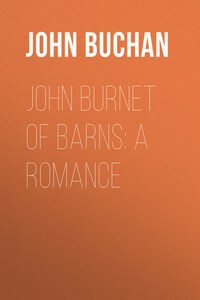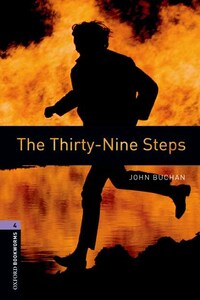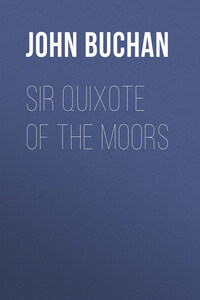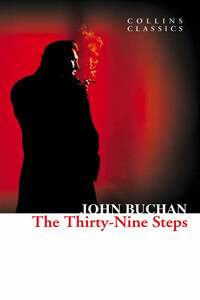CHAPTER I
THE ADVENTURE WHICH BEFELL ME IN THE WOOD OF DAWYCK
I have taken in hand to write this, the history of my life, not without much misgiving of heart; for my memory at the best is a bad one, and of many things I have no clear remembrance. And the making of tales is an art unknown to me, so he who may read must not look for any great skill in the setting down. Yet I am emboldened to the work, for my life has been lived in stirring times and amid many strange scenes which may not wholly lack interest for those who live in quieter days. And above all, I am desirous that they of my family should read of my life and learn the qualities both good and bad which run in the race, and so the better be able to resist the evil and do the good.
My course, by the will of God, has had something of a method about it, which makes the telling the more easy. For, as I look back upon it from the vantage ground of time, all seems spread out plain and clear in an ordered path. And I would but seek to trace again some portion of the way with the light of a dim memory.
I will begin my tale with a certain June morning in the year 1678, when I, scarcely turned twelve years, set out from the house of Barns to the fishing in Tweed. I had escaped the watchful care of my tutor, Master Robert Porter, the curate of Lyne, who vexed my soul thrice a week with Cæsar and Cicero. I had no ill-will to the Latin, for I relished the battles in Cæsar well enough, and had some liking for poetry; but when I made a slip in grammar he would bring his great hand over my ears in a way which would make them tingle for hours. And all this, mind you, with the sun coming in at the window and whaups whistling over the fields and the great fish plashing in the river. On this morn I had escaped by hiding in the cheese-closet; then I had fetched my rod from the stable-loft, and borrowed tackle from Davie Lithgow, the stableman; and now I was creeping through the hazel bushes, casting, every now and then, a glance back at the house, where the huge figure of my teacher was looking for me disconsolately in every corner.
The year had been dry and sultry; and this day was warmer than any I remembered. The grass in the meadow was browned and crackling; all the foxgloves hung their bells with weariness; and the waters were shrunken in their beds. The mill-lade, which drives Manor Mill, had not a drop in it, and the small trout were gasping in the shallow pool, which in our usual weather was five feet deep. The cattle were stertling, as we called it in the countryside; that is, the sun was burning their backs, and, rushing with tails erect, they sought coolness from end to end of the field. Tweed was very low and clear. Small hope, I thought, for my fishing; I might as well have stayed with Master Porter and been thrashed, for I will have to stay out all day and go supperless at night.
I took my way up the river past the green slopes of Haswellsykes to the wood of Dawyck, for I knew well that there, if anywhere, the fish would take in the shady, black pools. The place was four weary miles off, and the day was growing hotter with each passing hour; so I stripped my coat and hid it in a hole among whins and stones. When I come home again, I said, I will recover it. Another half mile, and I had off my shoes and stockings and concealed them in a like place; so soon I plodded along with no other clothes on my body than shirt and ragged breeches.
In time I came to the great forest which stretches up Tweed nigh to Drummelzier, the greatest wood in our parts, unless it be Glentress, on the east side of Peebles. The trees were hazels and birches in the main, with a few rowans, and on the slopes of the hill a congregation of desolate pines. Nearer the house of Dawyck were beeches and oaks and the deeper shade, and it was thither I went. The top of my rod struck against the boughs, and I had some labour in steering a safe course between the Scylla of the trees and the Charybdis of the long brackens; for the rod was in two parts spliced together, and as I had little skill in splicing, Davie had done the thing for me before I started. Twice I roused a cock of the woods, which went screaming through the shadow. Herons from the great heronry at the other end were standing in nigh every pool, for the hot weather was a godsend to them, and the trout fared ill when the long thief-like bills flashed through the clear water. Now and then a shy deer leaped from the ground and sped up the hill. The desire of the chase was hot upon me when, after an hour's rough scramble, I came to the spot where I hoped for fish.
A stretch of green turf, shaded on all sides by high beeches, sloped down to the stream-side. The sun made a shining pathway down the middle, but the edges were in blackest shadow. At the foot a lone gnarled alder hung over the water, sending its long arms far over the river nigh to the farther side. Here Tweed was still and sunless, showing a level of placid black water, flecked in places with stray shafts of light. I prepared my tackle on the grass, making a casting-line of fine horse-hair which I had plucked from the tail of our own grey gelding. I had no such fine hooks as folk nowadays bring from Edinburgh, sharpened and barbed ready to their hand; but rough, homemade ones, which Tam Todd, the land-grieve, had fashioned out of old needles. My line was of thin, stout whipcord, to which I had made the casting firm with a knot of my own invention. I had out my bag of worms, and, choosing a fine red one, made it fast on the hook. Then I crept gently to the alder and climbed on the branch which hung far out over the stream. Here I sat like an owl in the shade, and dropped my line in the pool below me, where it caught a glint of the sun and looked like a shining cord let down, like Jacob's ladder, from heaven to the darkness of earth.












